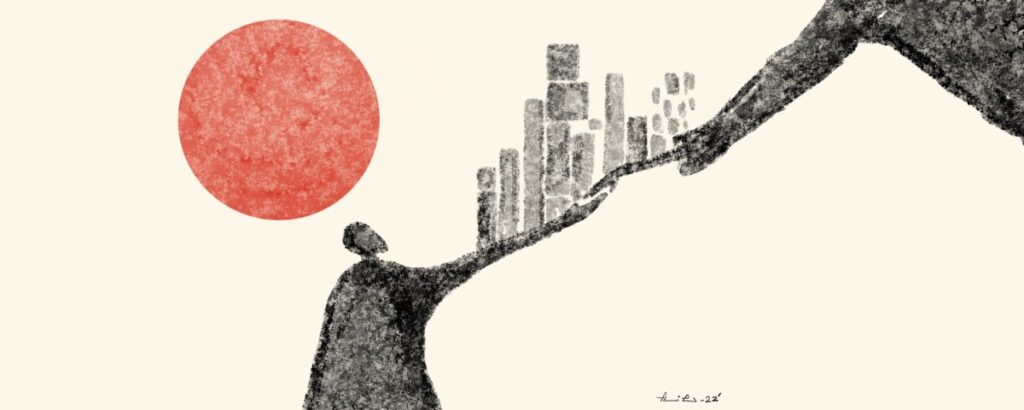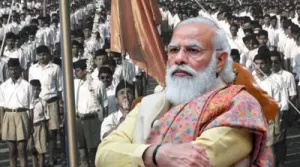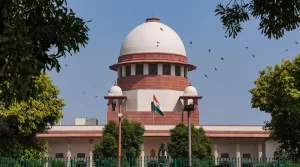This year, as in the last nine years, I feel like telling my students who send customised greetings on Teachers’ Day that they should in fact send condolence messages. What we are observing in the last nine years is the slow death of the profession of teaching. Teaching and teachers in India are in peril as never before.
On September 5, leaders would ask us to touch the feet of our teachers, to treat them as gods. But the reality is that they are not allowed to perform their dharma. Teachers are asked to accept the government as their guru and to treat its words as sacred in the best tradition of Indian disciplehood. Teachers cannot have a mind of their own.
Let us start with Jammu and Kashmir. Zahoor Ahmed Bhat, a senior secondary school teacher in the state was suspended a day after he argued in the Supreme Court against the Union government’s move to read down Article 370. In his 6-minute argument before the court, he said that after August 5, 2019, he was finding it difficult to teach the constitution of India as a teacher.
The reality of Kashmir after the reading down of Article 370 is a violation of the concept of the constitution. How can he as a teacher persuade his students about the sincerity of the promise of the constitution when his students find their lives ravaged by a state which swears by this document?
Bhat was an aggrieved teacher. For the audacity of airing of his grief in public, he was punished. While writing these lines, his suspension has been revoked after the Supreme Court rebuked the administration for its highhandedness.
Before him, Dr. Sabyasachi Das, a young professor at Ashoka University, was forced to resign for writing a research paper. Not only this, people from the intelligence agency of the government of India threatened to go to his university to find out whether he had written his research paper as part of any conspiracy and who else was involved in it.
Prior to this incident, four teachers of the Delhi-based South Asia University were suspended for writing a letter to the administration requesting it to take a sympathetic view of the agitation of the students.
Ashok Sopan Dhole, a teacher at Symbiosis Institute in Pune, was suspended and jailed for his lectures in his class. In the class he talked about the equality of all religions. Earlier in Kolhapur, Dr. Tejaswini Desai was forcibly sent on leave due to a remark she made in class. She said that rapists can belong to any religion, it is wrong to say that only people of a particular religion or community are rapists. A police complaint has also been filed against her.
Some time ago the principal and a teacher of a law institute in Indore were fired from their job and sent to jail after an ‘objectionable’ book was found in the college library. Gilbert Sebastian, a professor at the Central University of Kerala, was suspended for his class on fascism. Doctor Rajshree Ranawat of the Jodhpur University was suspended and a police report filed against her for holding an academic seminar. Haryana Central University teacher Snehasata Manav faced attacks and scrutiny for dramatising a story of Mahasweta Devi.
Forty eight teachers of Jawaharlal Nehru University are facing disciplinary action of the administration for last four years. Scores of them have been in courts fighting to get their due – leave for a seminar or sanction for a fellowship.
Apart from this, there are also reports of teachers being disciplined for their public writing. There are teachers, who wish to remain anonymous, who have been served show-cause notices by their administrations because of their articles. The number of such teachers is increasing.
We know that Pratap Bhanu Mehta was gently told by his board at the Ashoka University to spare the university as his public utterances are creating trouble for it. The board could not afford to have a Vice-Chancellor who makes the govenrment look bad through his writings.
On the other hand, there is also an increase in the number of such teachers who take pride in being seen as the propagandists of the government. They feel elated in the company of the pracharak or chief of the Rashtriya Swayamsevak Sangh, who collect gurudakshina or a teacher’s honorarium for it and treat the RSS flag as their guru.
Is it any wonder if students get confused about these two types of teachers? Closeness to the first type of teacher’s can be harmful while proximity with the other is beneficial. The question that keeps bothering them is whether the beneficial is also moral. This dilemma is practical. We teachers have to face these questions of students.
Especially at the time of entering PhD courses, researchers struggle with this dilemma: who is the teacher they should select as their supervisor? It should also come as no surprise that they often choose the teacher who can help them get worldly benefits.
It can be said that this is not a post-2014 development. Even earlier, there was competition among students for the patronage of some special teachers. But what is happening now is very different. The source of authority of these teachers is mostly their proximity to one or the other faction of the RSS.
The glory of the teacher was partly due to his indifference to worldliness in society. There was a sense of mental independence which people associated with the figure of the teacher. If the power lies in political authority, it has to face the power of knowledge. Teachers have been respected for their independence and not their subservience.
The responsibility of the teacher is to acquaint the students with the traditions and methods of the existing knowledge. But more than that, her responsibility is also to inculcate in the student enough courage for independent thinking and decision making. Students are not expected to follow popular opinion but to examine and question it. Teachers do not do this by hiding their thoughts. They assure the students that they can have their disagreement with their ideas, they can argue with them.
Another responsibility of the teacher towards the students is to challenge them to step out of their safe confines and face the unfamiliar or the unexpected. A teacher may become popular by pandering to the prejudices of the students, but they will be cheating on their duty.
One of the tasks of a teacher is to prepare the society to understand and examine itself. This is integral to the job.
A teacher in today’s India cannot discharge any of these responsibilities without putting herself at risk. Many teachers have taken this risk knowing well the whole situation. Like Hani Babu or Anand Teltumbde. Many teachers who did not go to jail like them are facing persecution of different types.
Let us dedicate this Teachers’ Day to these teachers.
(Apoorvanand teaches at Delhi University. Courtesy: The Wire.)




